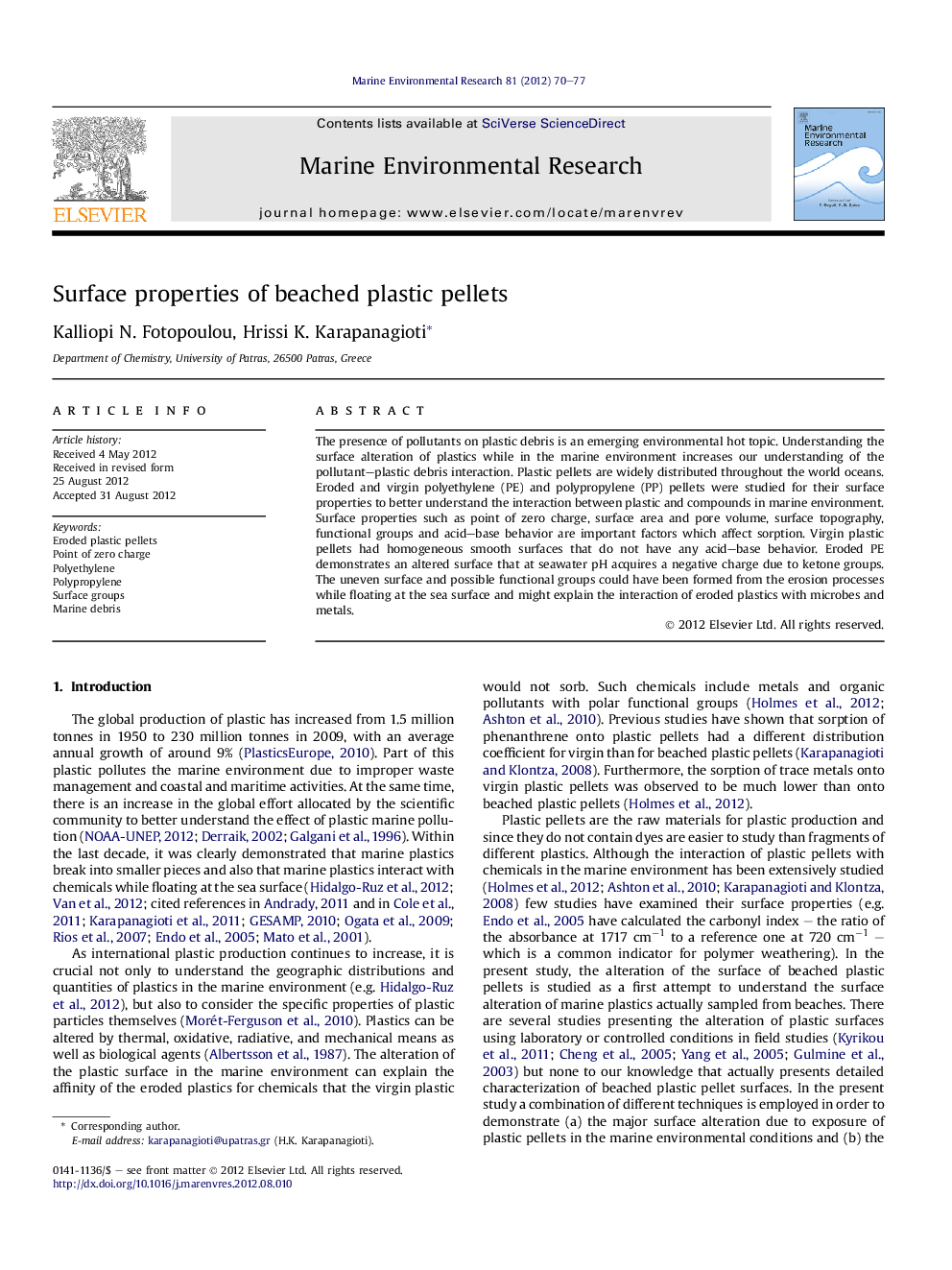| Article ID | Journal | Published Year | Pages | File Type |
|---|---|---|---|---|
| 4550971 | Marine Environmental Research | 2012 | 8 Pages |
The presence of pollutants on plastic debris is an emerging environmental hot topic. Understanding the surface alteration of plastics while in the marine environment increases our understanding of the pollutant–plastic debris interaction. Plastic pellets are widely distributed throughout the world oceans. Eroded and virgin polyethylene (PE) and polypropylene (PP) pellets were studied for their surface properties to better understand the interaction between plastic and compounds in marine environment. Surface properties such as point of zero charge, surface area and pore volume, surface topography, functional groups and acid–base behavior are important factors which affect sorption. Virgin plastic pellets had homogeneous smooth surfaces that do not have any acid–base behavior. Eroded PE demonstrates an altered surface that at seawater pH acquires a negative charge due to ketone groups. The uneven surface and possible functional groups could have been formed from the erosion processes while floating at the sea surface and might explain the interaction of eroded plastics with microbes and metals.
Graphical abstractFigure optionsDownload full-size imageDownload as PowerPoint slideHighlights► Study of virgin and beach eroded plastic pellet surface properties. ► Beach eroded polyethylene pellets formed surface groups and thus, acid–base behavior. ► Plastic pellet surface becomes rough and uneven after exposure to marine environment. ► At seawater pH, polyethylene surface demonstrates negative charge.
